Three Houston Theaters Come Together for Elliot Trilogy — an Unprecedented Arts Alliance
Epic Latino Saga Examines the Real Family Toll of War
BY Tarra Gaines // 02.07.20Gabriel Regojo as Elliot in the Stages production of Water By the Spoonful. (Photo by Amitava Sarkar)
One playwright, three plays, three theater companies, one character, two actors. That’s the equation for the unprecedented loose alliance of Houston theaters collaborating to produce the entirety of Quiara Alegría Hudes’s acclaimed Elliot Trilogy.
Together Stages, Main Street Theater and Mildred’s Umbrella will tell the full story of Marine Elliot Ortiz’s return from the Iraq War and the psychological inner battles he faces when he comes home.
To get a preview of the story so intimate yet complex it took three plays to tell it, PaperCity brought together the two actors playing the lead role for a kind of Elliot psychoanalysis session.
Gerardo Velasquez tackles the character in the Main Street Theater’s full production of the first in the trilogy Elliot, A Soldier’s Fugue and the Mildred’s Umbrella special readings of the final show The Happiest Song Plays Last. Gabriel Regojo plays Elliot in the middle show at Stages, the Pulitzer Prize winning Water by the Spoonful.
For several years, Stages artistic director Kenn McLaughlin has selected at least one contemporary show by a Latinx playwright or about the Latinx experience a season, so a work as significant as Water was an obvious choice for their 2019-2020 season and the inaugural production for the Lester and Sue Smith Stage as they made their big move into the Gordy.
Meanwhile, Main Street’s founder Rebecca Greene Udden had her eye on the trilogy for years and had talked with Mildred’s Umbrella’s A.D. Jennifer Decker about perhaps collaborating on the project.
“When Kenn announced Water, I jumped on it, calling him to ask if he would mind if we programmed Elliot at the same time, knowing that Jennifer, who was without a space and doing mostly readings, would be interested in doing a reading of Happiest Song, which she was. It came together in about a week,” Udden tells PaperCity.
A Meeting of the Elliots
Bringing together the actors portraying the three stages of Elliot, I found both Velasquez and Regojo seem to relish the challenge of getting their heads around this dynamic, ever changing young man.
“The last thing I did was a film [Rich Kids] about a poor Latino kid from Houston, that’s like me, so I didn’t have to change anything,” admits Velasquez, laughing. “Now I’m playing a Puerto Rican from North Philly, who’s in the Marine Corps. I had to shave, wear contacts, cut my hair. I stopped eating donuts, drinking beer.
“I’ve been running and working out everyday. He’s 19 in his prime, and I’m 24 and feel like an old man trying to live up to this character.”
Yet each actor had a distinctive way of getting to know the man and the material of the play.
“I’ve refrained from reading the other two because I don’t want to know what happens because technically Elliot doesn’t know what happens after he comes back home from war,” Velasquez says of his preparations for Soldier’s Fugue. “As an actor I’m trying not to read the other stories because I don’t want to have that stuff in my head going into a performance.”
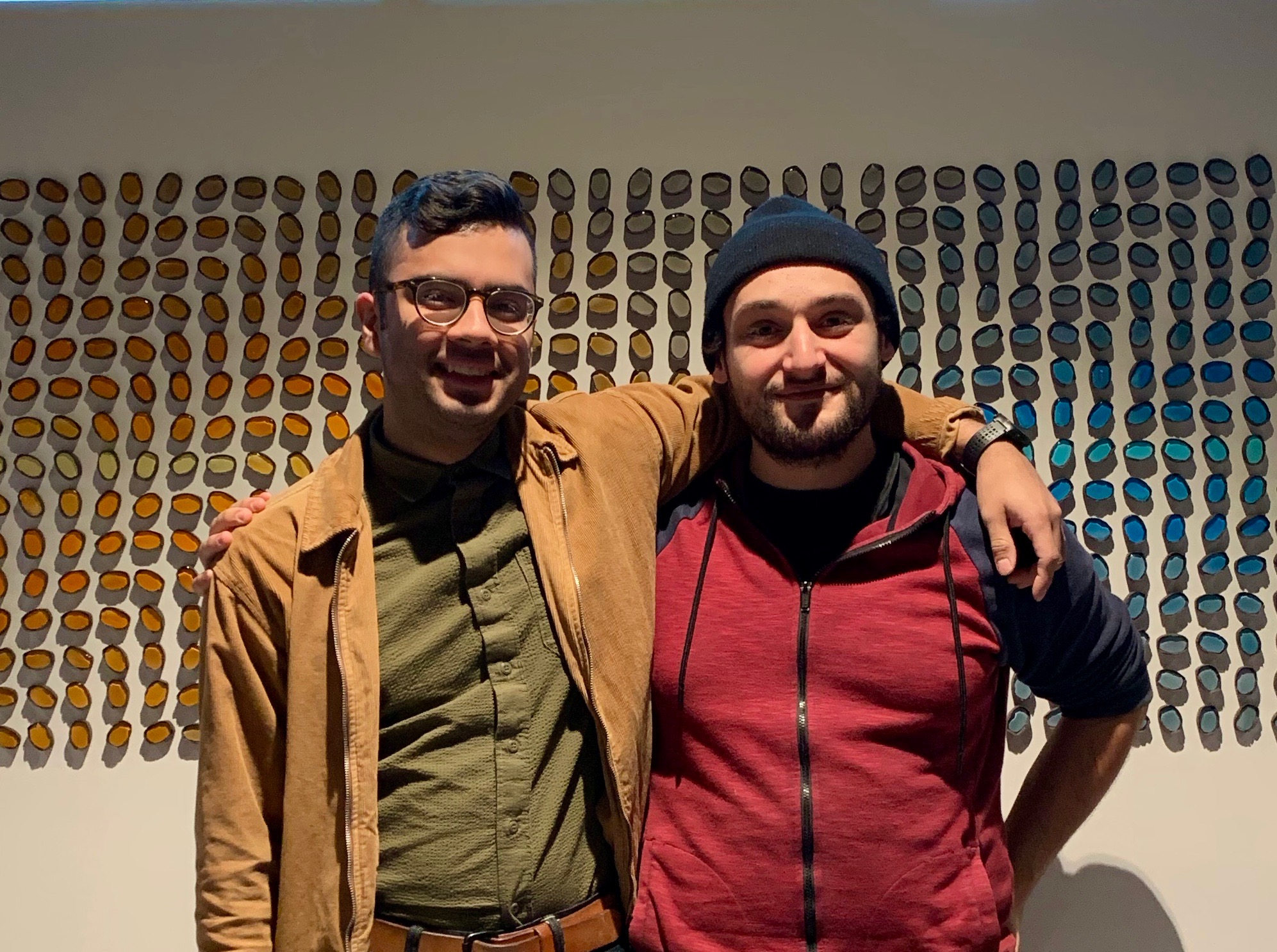
In contrast, Regojo was a great fan of Hudes’s trilogy long before he earned his role in Water, and since he plays Elliot in the second work, he went back to review all the plays again.
“For me it’s very helpful to get a full picture of who Elliot is and who he will become,” Regojo says. “In the first play, Elliot’s much more gung ho. He has no idea what the rigors of war look like. In the second play, he’s still haunted by what happened to him in Iraq, so knowing that information and seeing who he was before and reading him in that first scene, I’m seeing how he’s changed in that gap.”
Changes and Challenges
Since Elliot struggles but also grows so much within the three plays,Velasquez and Regojo find a very different man they’re each depicting while also seeing an unchanging core.
“Elliot is this youthful spitfire, loving kid. He’s pretty naive,” Velasquez says. “He wants to connect with his father. One of the major conflicts is that he’s trying to learn about his dad’s [Vietnam War] story because he wants to connect with him over something they very clearly have in common.
“They both went to war and they’re both marines and he’s also nagging his grandpa about his war stories.”
“There’s still signs of the kid before everything that happened to him,” adds Regojo about Elliot in Water after hearing Velasquez’s perspective on the younger Elliot. “He’s matured, but he has a little bit of an inability in the second show to express himself in a healthy way. He’ll deflect with humor or resort to anger in several moments. He’s just a lot more world weary.”
He adds that Water brings new issues and challenges on top of what Elliot faced in Iraq.
“Drugs is one of the main themes of Water, dealing with addiction,” Regojo says. “It’s Elliot battling with not only situational but the history of his family and his life with drugs.”
Yet both actors see the need for connection and community as one of Elliot’s primal motivations that doesn’t change from one story to the next, though the forms that connection do alter.
Finding Connections
Velasquez says in Soldier’s Fugue that need for connection and understanding comes as Elliot tries to get his father and grandfather to talk about their experiences in war.
“It’s that weird generational Latino culture thing where men don’t talk about their emotions but they love each other so much as a family,” he says. “They just don’t connect on a level where they can have a heart to heart conversation about what they’re feeling.”
Water brings different types of family and community for Elliot, his cousin Yaz and his birth mother. Some of those are biological and ethnic families but the play also depicts how online communities can become strong emotional support families, as well.
“In terms of the larger picture of the show, it’s about community and family. In all cultures family is important, but particularly in the Latin community and immigrant communities, having people that have that same cultural background and having that connection with them,” Regojo says.
When asked about the importance of Hudes’s trilogy to contemporary American theater, Udden sings all three shows praises.
“Yes, it is a Puerto Rican family, with a very specific heritage, but the armed forces are a great equalizer in our country, and everyone can relate to the experiences of the men and women in Elliot, a Soldier’s Fugue,” she says. “As the trilogy progresses and Elliot faces civilian life and tries to find a way forward, the story becomes even more relatable across cultural lines.
“Plus, Hudes’ writing is just so beautiful, poetic, musical and real.”
Elliot, A Soldier’s Fugue runs now through March 1 at Main Street Theater. Water by the Spoonful runs now through February 23 at Stages. The Mildred’s Umbrella special reading of The Happiest Song Plays Last runs March 6 to 8 at MST.
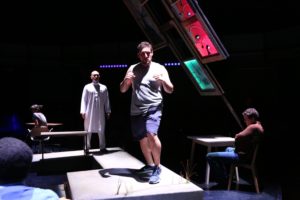


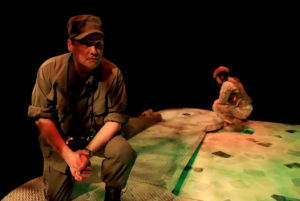
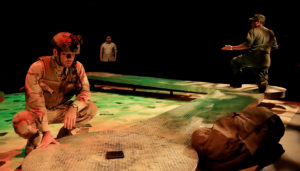
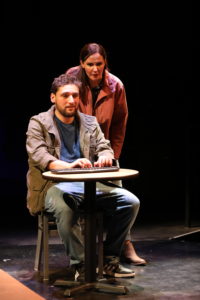
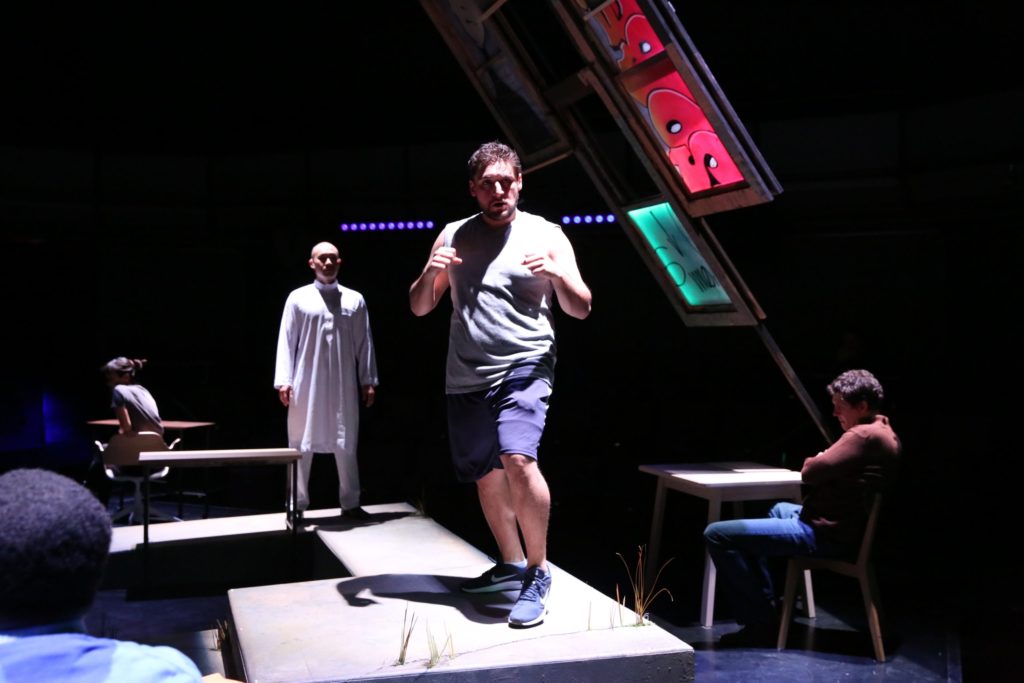
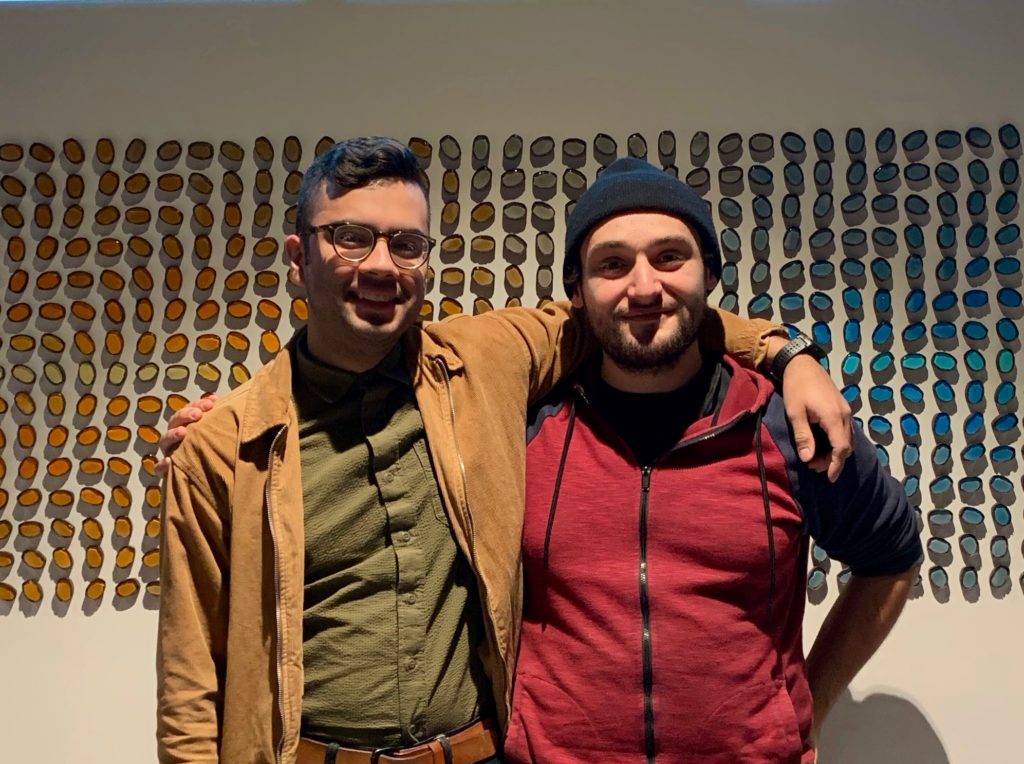
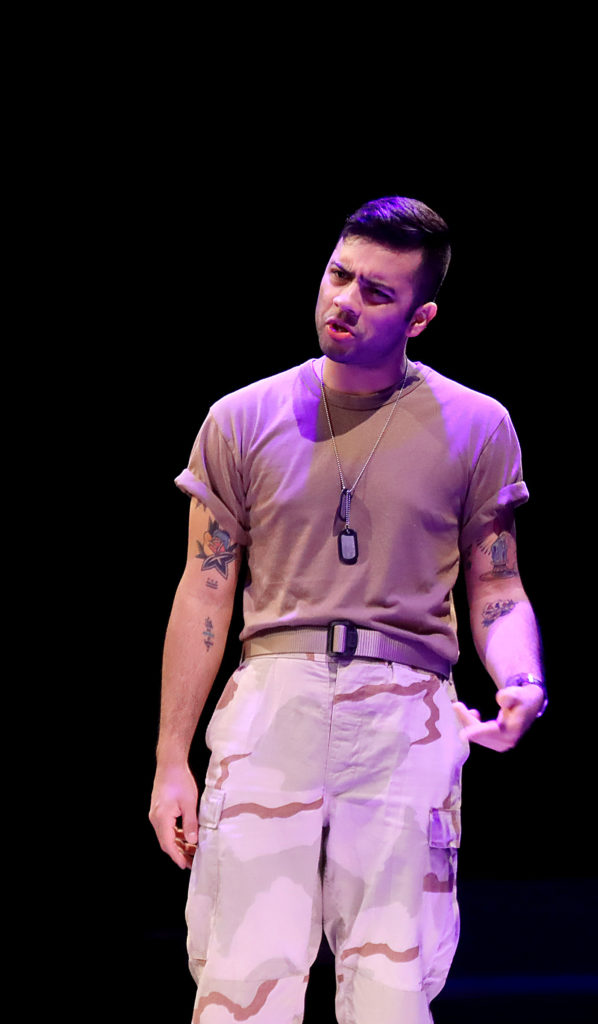
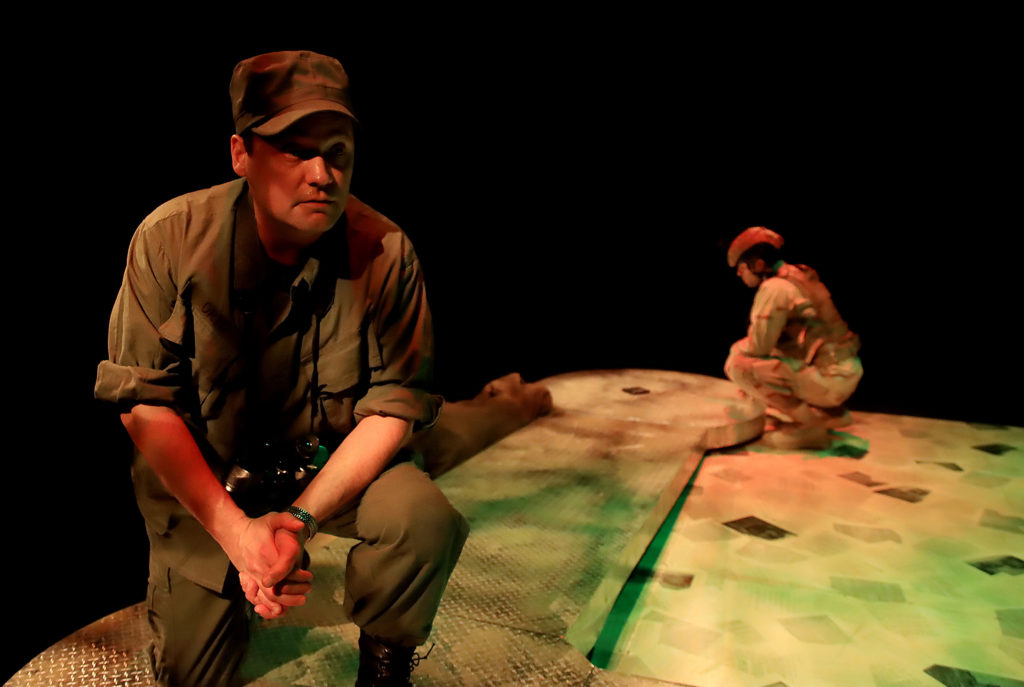
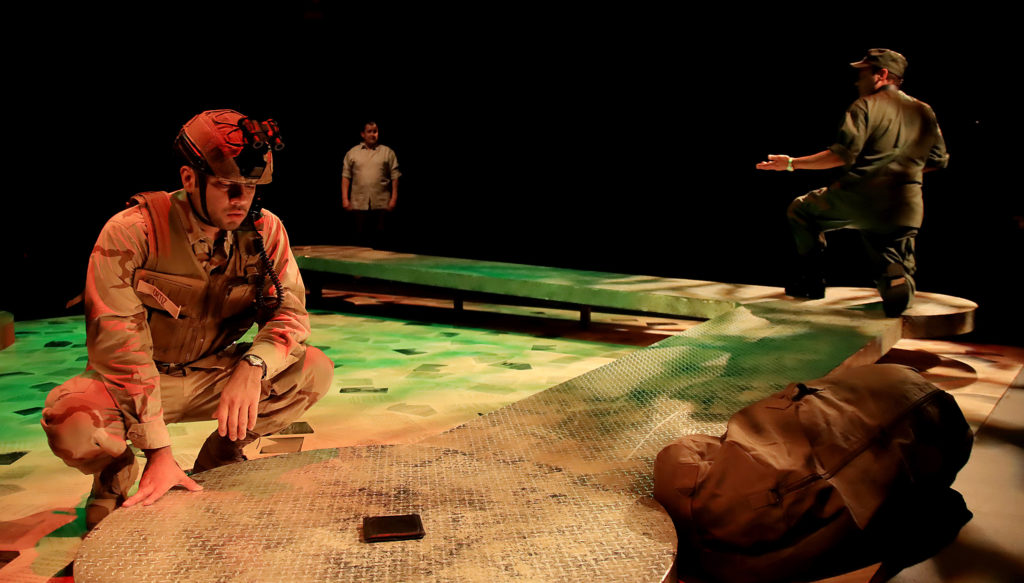
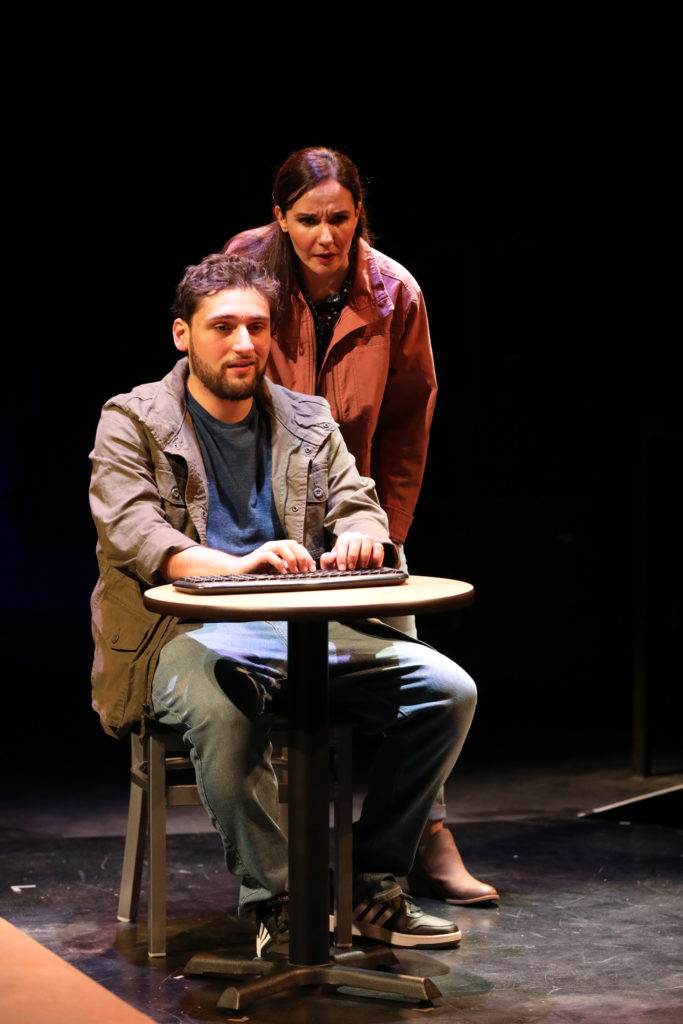

_md.jpg)




_md.jpeg)









